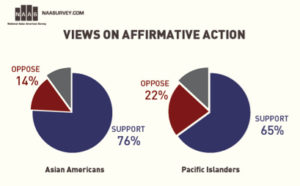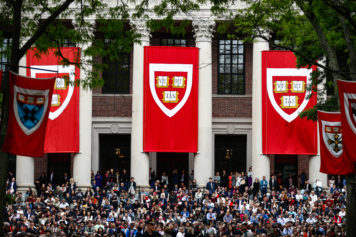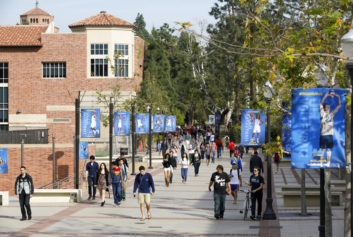The director of the anti-affirmative action campaign Project on Fair Representation has pushed Asian-Americans to the forefront of the campaign, causing some to question whether the project is merely exploiting Asian-Americans and the pre-existing stereotypes that surround the culture.
Project on Fair Representation director Edward Blum just rolled out three new websites earlier this month that are seeking students who have been denied admission to Harvard, the University of Wisconsin-Madison or the University of North Carolina-Chapel Hill.
The controversy with the websites is that they all have an obvious focus on Asian-Americans — as do many of Blum’s other websites he has launched in the past for the same campaign.
According to some university officials, it’s very clear what he is trying to do.
“He’s doing an excellent job of using Asian-Americans as a wedge to oppose race-conscious admissions,” said Jennifer Lee, a sociology professor at the University of California at Irvine.
In other words, he’s using the stereotype that all Asian-Americans are incredibly intelligent and deserve to be accepted into any college they choose to suggest that affirmative action is causing deserving students to be turned away.
“Asian-Americans have been used over and over and over again to make the point that racism is not an insurmountable disadvantage if you’re willing to just shut up and put up and work hard enough to succeed,” said Scot Nakagawa, senior partner at the racial justice think tank ChangeLab.
Blum, on the other hand, believes that notion is “misguided” and insists his websites feature plenty of other races in addition to Asian-Americans.
“Some of the pictures are obviously Asian, but some are obviously indeterminate,” Blum argues.

In addition to grades and standardized testing scores, many schools also look at personal essays, recommendation letters, community service, campus involvement, leadership skills, whether or not the student will be a first-generation college student, whether the student will be considered a traditional student and much more.
Even Princeton professor Thomas Espenshade, who conducted a study in 2009 that revealed African-American students were being accepted into universities with lower test scores and grades than Asian-Americans and white applicants, admitted that the test wasn’t nearly enough to prove affirmative action is an issue to any race.
The study did not have access to all the other aforementioned factors that universities consider outside of just grades and test scores.
Espenshade said the study revealed consequential evidence at best and was far from being a “smoking gun” against affirmative action.
Also, using Asian-Americans as the face of the campaign is extremely misleading considering the fact that a large number of Asian-Americans support affirmative action.
According to the National Asian American Survey, more than 75 percent of Asian-Americans are in favor of affirmative-action programs that are designed to help minorities get better jobs and education.


